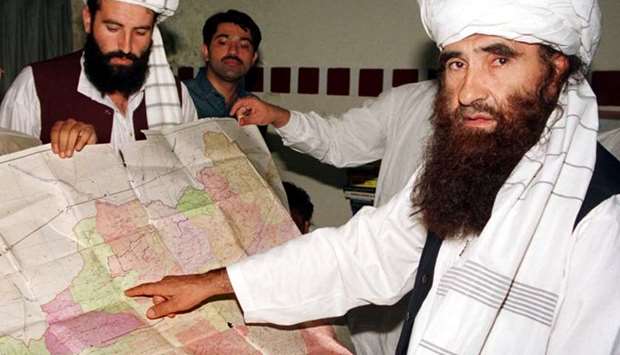* Insurgent leader Jalaluddin Haqqani dies after long illness
* Network known for complex, well-organised attacks
* Former guerrilla leader handed control to son some years ago
* Group founded in 1970s, fought Soviets, then Americans
Jalaluddin Haqqani, founder of the militant Haqqani network, one of the most powerful and feared groups in the Afghan insurgency, has died after a long illness, the Taliban said on Tuesday.
Haqqani, who founded the network in the 1970s, gave up operational leadership of the group some years ago to his son Sirajuddin, who is now deputy leader of the Afghan Taliban, with a $5-million US bounty on his head.
Defence ministry spokesman Mohammad Radmanish said the death was not expected to mean any major change for the Haqqani network, blamed by Afghan and US security officials for some of the most devastating suicide attacks of the past decade.
"Operationally, his death will not have an impact on the group," he said, adding that Haqqani's role in recent years was ideological rather than practical.
Haqqani achieved prominence as a guerrilla leader in the US-backed campaign against Soviet forces occupying Afghanistan during the 1980s but later allied himself with the Taliban, fighting American troops after the Taliban were ousted in 2001.
His group became notorious for complex, well-organised attacks on both Afghan and US military, as well as civilian targets and high-profile kidnappings.
With hopes for peace talks raised by last June's unprecedented ceasefire, news of the death of one of the most notorious militant commanders comes at a sensitive time for both the Taliban and Kabul's Western-backed government.
Jalaluddin Haqqani's death has been reported a number of times over recent years, although never confirmed, but he is not believed to have held any operational role for some time.
"Haqqani had become quite old and was suffering from different health problems and had handed over the network to his eldest son, Sirajuddin Haqqani, and his other sons," said one Taliban source close to the Haqqani family.
Haqqani had been ill and bed-ridden for several years but remained an inspiration for the Taliban, the movement said.
"If Haqqani Sahib has departed (from) us physically, his ideology and methodology continue to endure," it said in a statement.
US and Afghan officials have said the group, based in Pakistan's region of North Waziristan, and considered close to Al Qaeda, operated with the support of Pakistani intelligence services.
That charge is rejected by Pakistan, which has pointed to the network's early links to the US Central Intelligence Agency.

